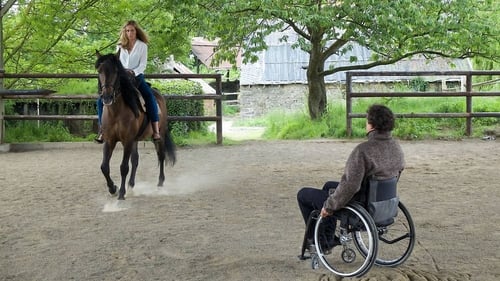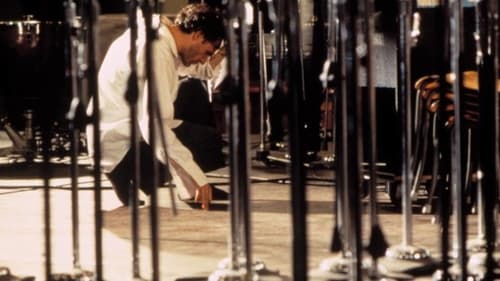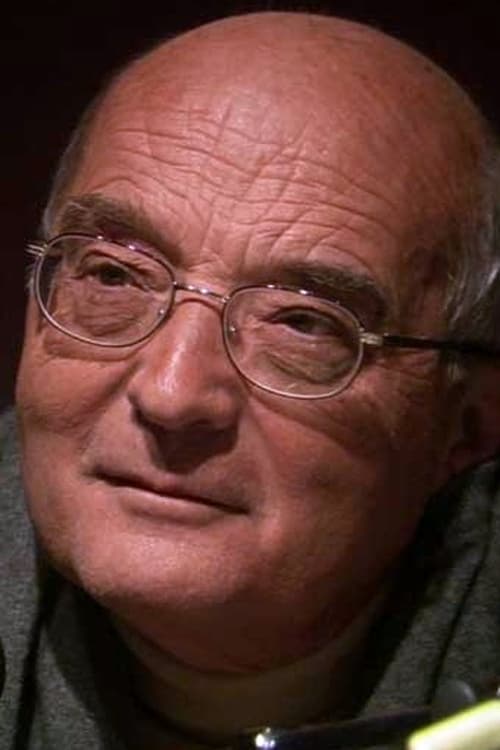Bruno Monsaingeon
Nascimento : 1943-12-05, Paris, France
História
Bruno Monsaingeon (born 5 December 1943) is a French filmmaker, writer, and violinist. He has made a number of documentary films about famous twentieth-century musicians, including Glenn Gould, Sviatoslav Richter, David Oistrakh, Piotr Anderszewski, Yehudi Menuhin, Francesco Libetta, Grigory Sokolov and David Fray. His interviews with Richter and with Nadia Boulanger have also been published as books.
Source: Article "Bruno Monsaingeon" from Wikipedia in English, licensed under CC-BY-SA 3.0.

Writer

Director

Piano teacher
After a serious accident on a film shoot, Marc, an equestrian, loses all hope to mount back on. His insurance company instructs Florence to handle his case. This film is the story of their meeting.

Director
A unique film portrait of the famous Italian pianist. Maurizio Pollini felt himself that the time had come to submit to the probing of the camera, an exercise made all the more necessary because of his usual avoidance of the public eye.

Director
Swing, Sing and Think is a chronicle of the young French pianist David Fray's recording sessions of three of Bach's famous clavier concertos. Each chapter features a few minutes of Fray at home in Paris explicating his interpretation of the score at his piano, followed by rehearsal and recording sessions he conducts with the Deutsche Kammerphilharmonie Bremen, one of the finest chamber orchestras in Europe.

Writer
Swing, Sing and Think is a chronicle of the young French pianist David Fray's recording sessions of three of Bach's famous clavier concertos. Each chapter features a few minutes of Fray at home in Paris explicating his interpretation of the score at his piano, followed by rehearsal and recording sessions he conducts with the Deutsche Kammerphilharmonie Bremen, one of the finest chamber orchestras in Europe.

Director
Director Bruno Monsaingeon stages this live musical journey into the works of Johann Sebastian Bach, featuring virtuoso Marie-Claire Alain playing organs hand-selected to best represent Bach's Baroque style. The tour incorporates venues at which the maestro himself would have performed, such as Haarlem, Rötha, Groningen and Dresden, and includes masterpieces such as Toccata in F Major, Trio Sonata no. 1, Fantasia and Fugue in G Minor, and more.

Director
Prepared, shot, and edited over a period of five years from 1976 to 1981, the three-part series Glenn Gould Plays Bach has so far only been seen via the limited parameters of television transmission. Now, for the first time, this testment is made available with a sound and picture reporduction faithful to our original conception. This film, shot in New York in April and May 1981, marks his life--as if interpolated between the two peaceful Arias and the two recordings, the one opening, the other closing his career--with a symbol of cyclic perfection.

Director
This documentary introduces the unbelievable talents of Valeriy Sokolov. A short introduction gives way to concert footage guaranteed to amaze. The repertoire includes Beethoven's 7th Violin sonata, Prokofiev's 2nd sonata, Saint-Saens' Introduction and Rondo Capriccioso, and Miroslav Skorikh's Spanish Danse.

Writer
A retrospective of the life and work of Glenn Gould, Hereafter synthesizes an incredible wealth of archival material from various sources.

Director
A retrospective of the life and work of Glenn Gould, Hereafter synthesizes an incredible wealth of archival material from various sources.

Director

Director

Director
"Les Pianos De La Nuit" is a collection of piano recitals performed live in the heart of Provence during the International Piano Festival of La Roque D'Antheron in July and August 2002. Conceived specifically for DVD release, these virtuoso performances by contemporary artists can claim authoritative status as classic 21st-century archival footage. R. Strauss Ständchen, Op. 17 No. 2 Serenade Till Eulenspiegel, Op. 28 Godowsky Studies after Chopin’s Studies No. 47 Badinage No. 28 Study in Octaves No. 22 Study for the Left Hand Debussy L’Isle joyeuse Hummel Rondo in E-flat major, Op. 11 Liszt Totentanz, S 525 Ligeti L’Escalier du diable (No. 13 from: Études pour piano II) Saint-Saëns Study in the Form of a Waltz, Op. 52 No. 6 Tchaikovsky Pas de deux from “The Sleeping Beauty” Adagio Variation I : Désiré Variation II : Aurore Coda Alkan “20 Years” from the Grand Sonata, Op. 33 “The Four Ages” Delibes Pizzicato Polka from “Sylvia”

Director

Director
A film written and directed by Bruno Monsaingeon. Drawing on archival performance footage and interviews, The Art of Violin evokes the vast panorama of the world of the violin in the 20th century and its most outstanding performers. It is hard to express the explosions of joy occasioned by the discovery of long sought-out but undreamed-of archives, such as some silent - and later resynchronised - film footage, or the few brief moments of Chausson's Poeme played by Ginette Neveu, the silent yet moving (in every sense of the word)images of Kreisler and Ysaye, the awe of a young Menuhin, the superb single camera shot of David Oistrakh performing the cadenza from Shostakovich's First Concerto. Contributions from Ivry Gitlis, Ida Haendel, Hilary Hahn, Laurent Korcia, Yehudi Menuhin, Itzhak Perlman, and Mstislav Rostropovich, Produced by Pierre-Olivier Bardet & Stephen Wright.

Director
Bruno Monsaingeon wrote and directed this 144-minute French documentary about Russian pianist Sviatoslav Richter, who died August 1, 1997. Black-and-white performance clips from the 1930s are combined with later Mosfilm color footage, while Richter's personal history is revealed in digital video interviews shot two years before his death.

Director
The life and virtuosic work of Russian violinist David Oistrakh, once known as King David in the Soviet Union, is chronicled with depth and detail by filmmaker Bruno Monsaingeon in this intriguing portrait of an artist. Highlights include a range of performance footage throughout Oistrakh's legendary career, as well as interviews with his son, Igor, conductor Gennadi Rozhdestvensky, cellist Mstislav Rostropovich and violinist Yehudi Menuhin.

Self - Violin I: Opus #1
O filme mostra em 32 fragmentos (a rigor, pequenos filmes) a produção e a complexa personalidade do pianista Glenn Gould (1932-1982), com depoimentos e detalhes da vida daquele que era considerado um herói canadense.

Director
Part Two of the legendary trilogy of television films on Bach with Glenn Gould, directed by Bruno Monsaingeon.

Director
Part One of the legendary trilogy of television films on Bach with Glenn Gould, directed by Bruno Monsaingeon, now for the first time together in a 3 DVD set. The Question of Instrument (1979), a CBC-Clasart co-production about Bach’s abstract to non-instrumental approach to composition, and performances from the Art of the Fugue, the Chromatic Fantasy, and of the complete D major Partita.

Director
This documentary is the first film ever made by Bruno Monsaingeon. It was shot in the 1960s and early 1970s in grainy black and white and only average sound, when Boulanger was in her late 80s and still fearsomely in command of her abilities. Monsaingeon re-cut the film in 1977. This film remains one of the most important documents concerning this fabled teacher. She is seen at one of her fabled 'Wednesdays', a composition lesson held weekly in her apartment for almost six decades and attended by anyone who would come. In this particular session she talks illuminatingly with students about a small portion of Schumann's 'Davidsbündertanze'.

Self
Filmmaker Bruno Monsaingeon visits piano virtuoso Glenn Gould more than ten years after his self-imposed exile from the stage, which results in a mixture of interview and performance.

Writer
Filmmaker Bruno Monsaingeon visits piano virtuoso Glenn Gould more than ten years after his self-imposed exile from the stage, which results in a mixture of interview and performance.

Director
This film is devoted to the artistic heritage of a personality who ranked among the most extraordinary musicians of his time, even as a child. Menuhin was not a mere musician: he was a cosmopolitan, a peacemaker and a true humanist. French filmmaker Bruno Monsaingeon, who filmed this great retrospective, describes his work with Menuhin as follows: “He threw himself into it whole-heartedly, with great sense of humour and overwhelming humanity. This film also shows my heartfelt gratitude for a man who gave such decisive sense to my own existence.”



